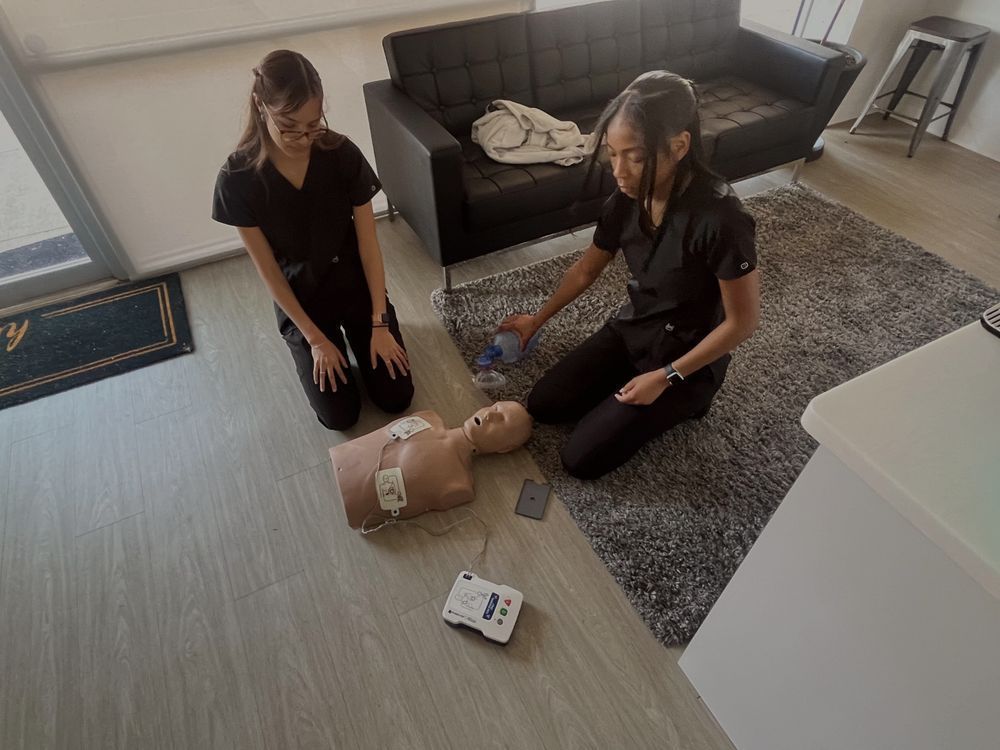What Does a Medical Assistant Do_ Roles, Responsibilities, and More
What Does a Medical Assistant Do? Roles, Responsibilities, and More
In today’s fast-paced healthcare system, medical assistants (MAs) play a crucial role in keeping clinics, physician’s offices, and outpatient centers running smoothly. Acting as the connective tissue between patients, doctors, and other healthcare professionals, MAs blend clinical knowledge with administrative expertise. Their versatility allows them to assist with both patient care and medical office operations—a unique blend that’s increasingly in demand.
As healthcare grows more complex, the need for well-trained medical assistants is rising. These professionals ensure patients receive timely care, records are accurate, and providers can focus on diagnostics and treatment. Whether you’re considering a new career or just curious about what MAs actually do, this guide breaks down the key roles and responsibilities of a medical assistant and why they’re so vital to modern medicine.
- Perform Clinical Duties to Support Patient Care
One of the primary roles of a medical assistant is to help with the hands-on side of healthcare delivery. MAs are often the first point of contact for patients during an office visit. They measure vital signs such as blood pressure, heart rate, temperature, and oxygen levels, preparing patients for their examination. These routine checks offer providers valuable data that shapes the rest of the visit.
Beyond initial assessments, medical assistants may assist physicians with in-office procedures, wound care, or diagnostic tests. Depending on state regulations, they may also administer medications or perform simple laboratory tests. Their support streamlines patient flow and ensures physicians can focus on higher-level decision-making, ultimately improving efficiency and care quality.
- Manage Administrative Tasks and Medical Records
Medical assistants aren’t only confined to the exam room. A significant portion of their job happens behind the scenes, where they manage patient data, medical records, and office correspondence. They’re often responsible for scheduling appointments, updating electronic health records (EHR), managing insurance forms, and coordinating patient referrals.
This administrative backbone keeps the office running efficiently. Accurate records and scheduling ensure patients are seen promptly, providers have up-to-date information, and billing departments can process claims without delays. MAs must be highly organized and detail-oriented, as even minor documentation errors can cause big headaches for patients and staff alike.
- Act as a Liaison Between Patients and Providers
Good communication is critical in healthcare, and medical assistants play a central role in bridging the gap between patients and their providers. They explain treatment procedures, offer instructions for medication, and answer questions in a way that’s accessible and reassuring. Since patients often feel anxious during medical visits, MAs help reduce stress by providing clear information and compassionate care.
In some settings, medical assistants also coordinate follow-up care or call patients with test results. This continuity builds trust and improves health outcomes. MAs become familiar faces in a healthcare setting, especially for patients managing chronic conditions who return frequently for checkups and treatment plans.
- Support Medical Billing and Insurance Processes
Understanding the financial side of healthcare is another key skill set for medical assistants. They help verify patient insurance, collect co-pays, process billing codes, and manage claims. A strong grasp of basic medical coding and terminology allows MAs to ensure claims are processed correctly, which is essential for keeping the clinic financially healthy.
Errors in billing can delay payments or create confusion for patients. Medical assistants who are trained in healthcare finance practices can avoid these issues, speeding up reimbursement and helping patients better understand their financial responsibilities. Their ability to explain insurance coverage in plain terms can also build patient satisfaction and trust.
- Ensure a Clean, Safe, and Stocked Clinical Environment
In any healthcare setting, safety and cleanliness are top priorities. Medical assistants take responsibility for sanitizing equipment, disinfecting exam rooms between visits, and ensuring infection control procedures are followed. They often manage inventory by ordering medical supplies and restocking exam rooms so providers always have the tools they need.
This work is especially important in today’s health landscape, where infection prevention and patient safety are under increased scrutiny. A well-organized and sanitary environment helps protect both patients and staff. MAs who excel in these tasks demonstrate a commitment to quality care and professionalism that providers deeply value.
- Contribute to Team-Based, Patient-Centered Care
Modern healthcare relies on collaboration. Medical assistants are integral members of the care team, working alongside nurses, physicians, administrative staff, and specialists to deliver holistic, patient-centered care. Their ability to adapt to different roles makes them a versatile asset in any healthcare setting.
They may assist in implementing care plans, tracking patient outcomes, and participating in quality improvement initiatives. MAs often serve as the “glue” that holds the care team together, keeping communication flowing and tasks coordinated. Their contributions are key to ensuring that patients receive timely, consistent, and effective treatment.
Ready to Train as a Medical Assistant?
If you’re ready to take the next step toward a rewarding healthcare career, Pulse Medical Assistant School offers a streamlined and effective path forward. Pulse is an online-first, 16-week medical assistant program designed to prepare you for the demands of real-world clinical settings. With intensive, in-person labs, students gain hands-on experience that builds the confidence and skills needed to deliver real care to real patients. Begin your journey toward a career where you make a difference every day.
You're only a few months from the medical assistant career you deserve.
